Rotary Club, groups, individuals join to help provide personal protection equipment and more
By Bob Steenson, bsteenson@charlescitypress.com
One thing that has not been quarantined by the coronavirus pandemic is ingenuity. Nor have selflessness and caring.
In Charles City, many people have worked to provide needed personal protection equipment, cutting out and stitching together face masks for health care workers as well as at-risk individuals.
Some have taken the effort to another level, turning to the marvel of 3D printing to build parts for face shields and more advanced face masks.
A Rotary Club grant has helped support some of the 3D printing, as well as purchasing laptops for area care facility residents to keep in touch with the outside world.
Sue Ayers, an owner, retired administrator and now infection prevention nurse at Chautauqua Guest Homes in Charles City, said they have been having “a horrible time” finding personal protection equipment (PPE).
“We have called and called and called, and specifically face shields was a big deal. If you wear those plastic goggles all day long they are so uncomfortable,” said Ayers, who is also a member of the Charles City Rotary Club.
Ayers has a son, Cody, a Charles City High School graduate, and his undergraduate degree was in biomedical engineering at the University of Iowa. He’s an attorney in Davenport now.
“I was talking to him about this (face shield) problem and he said, ‘Mom, you could make those on a 3D printer.’ He said, ‘I’ll call you back later,’ and he started sending me pictures of prototypes of face shields.”
Cody contacted a network of people and businesses with 3D printers based loosely in Cedar Rapids that Gov. Kim Reynolds had been promoting, “and got us hooked up,” Ayers said.
But then he suggested his mom contact the local high school, thinking they had 3D printers as well.
Enter Bret Spurgin, Charles City vocational ag instructor.
“I got a message … that Chautauqua was looking for somebody with a 3D printer or somebody who knows how to use a 3D printer to make face shields and different types of PPE for the employees at the nursing homes,” Spurgin said.
He contacted high school Principal Bryan Jurrens for permission to take the ag program’s 3D printer home, “and then we went ahead and actually bought a second printer as well so I could have two printers at home going, printing these off for use at the Chautauqua homes.”
Spurgin is printing the visor part of the face shields that holds the transparent plastic that covers the face.
“It takes me about an hour and a half to print one of those, but then I’m also doing some facemasks, and those take quite a while. Those will take anywhere from five to eight hours, depending on the size of the facemask,” he said.
The facemasks are plastic masks with spaces to place filters, which can be cut from high-quality filters for furnaces.
“It’s not quite N95,” Spurgin said, referring to a type of respirator facemask for industrial and medical uses.
“I’ve given a few of those for the school to use, in the lunch program, for when they’re preparing meals for the families that come through and pick those up.”
Spurgin said he has been working with Sue and Dave Ayers on what is needed, and with Cody Ayers on plans and 3D printer files.
“But what I’ve really been doing a lot lately is the ear guards, to put on the back of the head so nurses or doctors or whoever, so they don’t have to wrap the bands of the facemask around their ears, and so that way it doesn’t pull on their ears all day long,” he said.
Another source of face shield parts is coming from John Deere.
Cathy Rottinghaus is a Rotary Club member, and her son is an engineer at John Deere, where that company has been using its 3D printers to produce PPE parts, so some of those are now also coming to Charles City.
“It’s so fun, the local connections,” Ayers said.
Helping fund the cost of procuring these items is a grant from the Rotary Club.
Ayers explained that the Charles City Rotary Club had applied for and received a grant last fall from the Rotary District for a well and septic project in Haiti, but because of political and economic disruptions in Haiti it was unable to do the project and had to return $3,200.
Last month the district informed the Charles City club it could use the $3,200 for a COVID-19 project, and Kay Winkelman, club president, and Ayers, who had written the Haiti grant, began brainstorming ideas.
In addition to using part of the grant money to produce face shields for the health care workers, Ayers said, they wanted to do something to help the residents of the Chautauqua homes on 9th Street and 12th Street, as well as the clients at Comp Systems.
“You have to realize that since March 1 at 9 a.m. we had to start restricting visitors, and that includes even doctors,” Ayers said.
“Comp Systems is kind of in the same boat as us. Their clients have been restricted to their rooms,” she said. “They can’t have visitors — that’s horrible.”
A lot of the residents and clients also don’t have or can’t afford the technology to be able to communicate with other people electronically.
“So I said to Kay, ‘What about some large-screen laptops?’ The docs could do telehealth visits, which is one of the waivers the governor specified, and then when they’re not being used for doctor visits, the residents or the clients could use them to hook up with their families,” Ayers said.
Craig and Cindy Haberkorn at Computronics in Charles City were able to locate three 15½-inch laptops for the club to purchase at cost, despite that type of equipment being in very short supply, since most of it comes from China.
“You know how if things are supposed to work out, they do?” Ayers asked. “That’s exactly what happened!”
Winkelman delivered a laptop each to the two Chautauqua homes and Comp Systems earlier this week.
“They will be used for doctor visits, specialty visits, and to communicate with their families,” Ayers said. “So we can set up Zoom meetings, Facetime or whatever the family’s comfortable with. Isn’t that awesome!”
Ayers said she received 75 face shields in the mail last Saturday, and her son texted her to say more are on the way.
Spurgin said earlier this week that at that time he had printed about 50 of the visors for the face shields.
Ayers said the goal is to get about 200 of the visors, and about 700 of the transparent face shields, which can be cut out of sheets of transparent plastic. The face shields can be rotated in use with the visors, with some of them being used while others are being sanitized or disinfected.
“This community has really, really, really, really stepped up to the plate,” Ayers said.
She mentioned the efforts by Holly Connor, owner of Stitches Fabric and Yarn Shoppe in Charles City, to organize and provide materials for people to make fabric face masks, for health care workers and then also for residents of the nursing homes after it was recommended that they wear masks as well when staff are in their rooms.
Ayers said the coronavirus is scary, especially the thought of it getting into the nursing homes.
“Please, please, please keep up the social distancing,” she said. “I know that it gets so difficult, but I also know that’s the only thing that will make a difference.
“If we all do this together that’s just as important as making masks or shields or anything else.” Ayers said. “That’s something that everybody can do that doesn’t cost anything.”

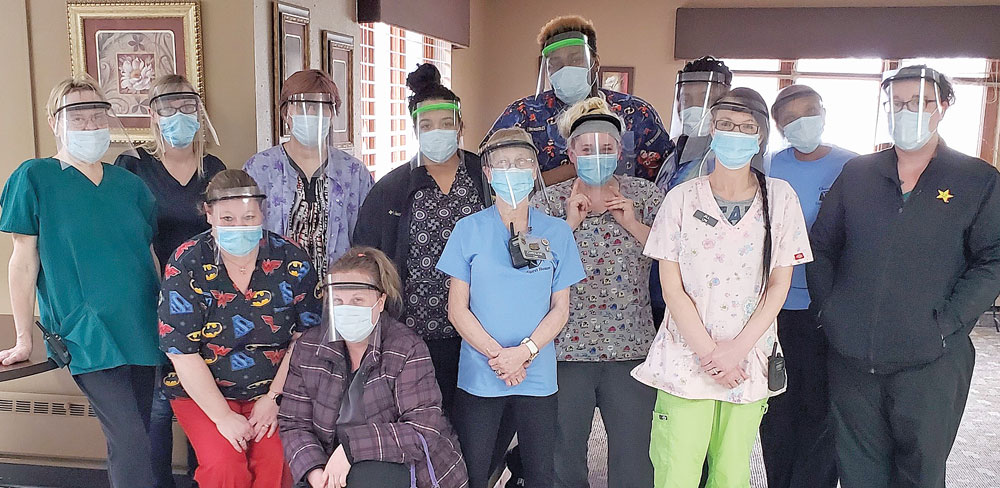
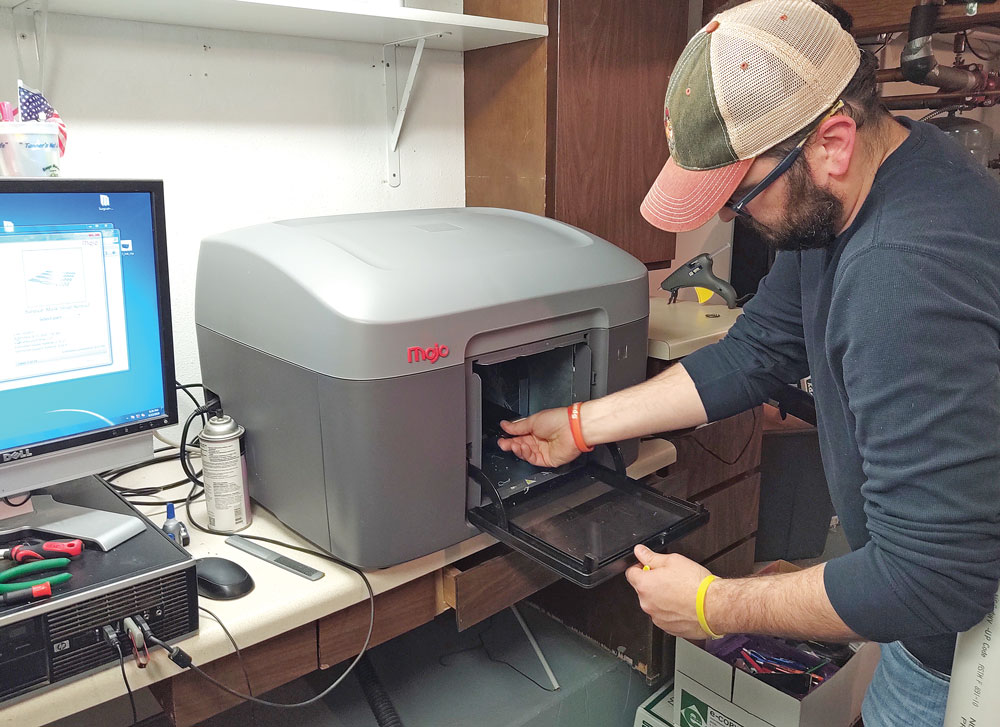
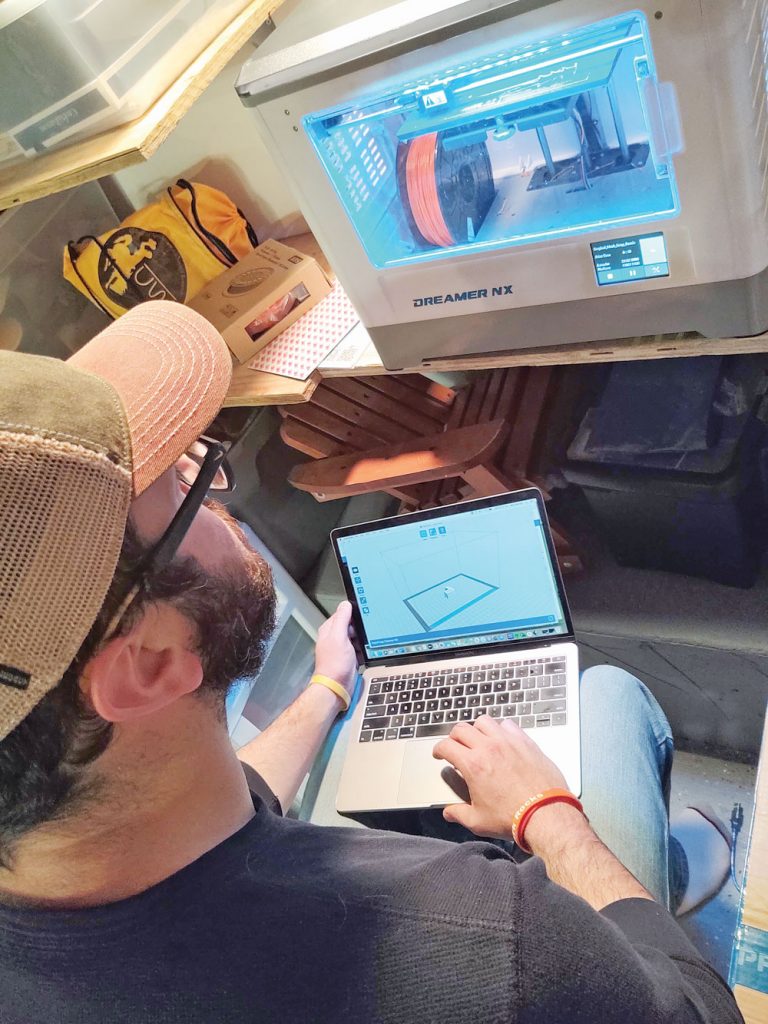
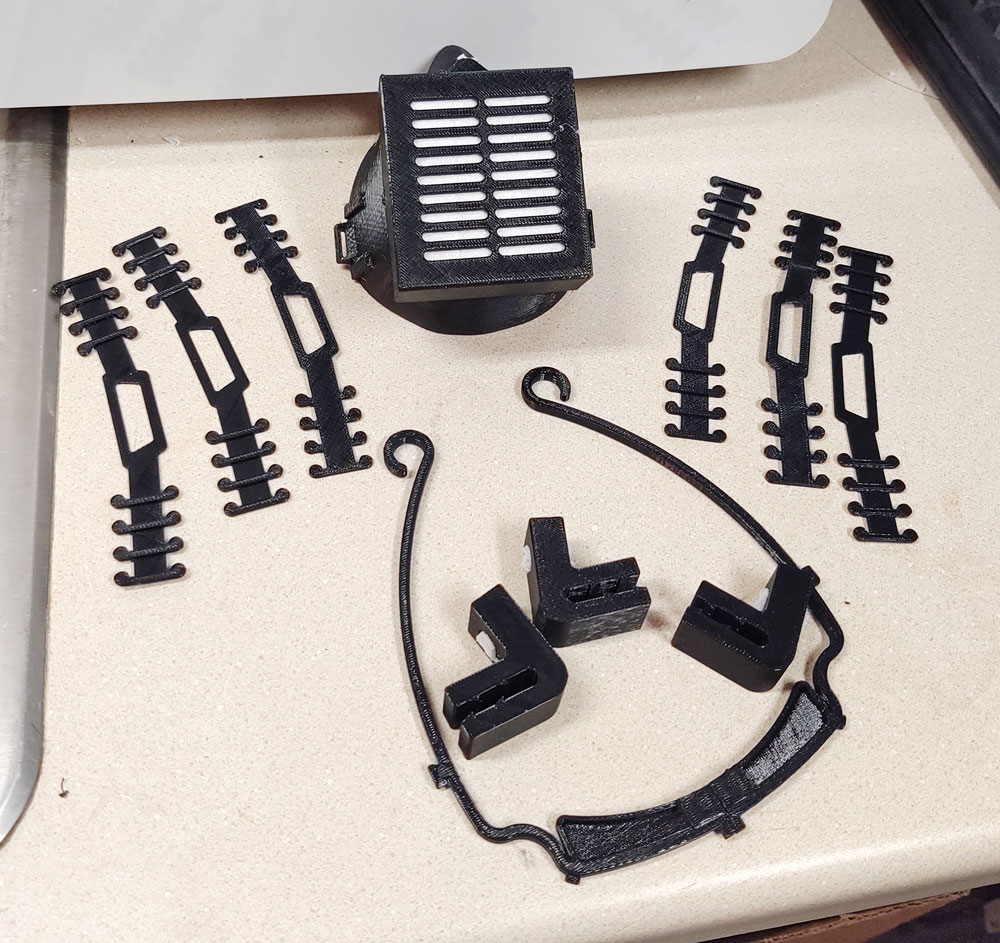
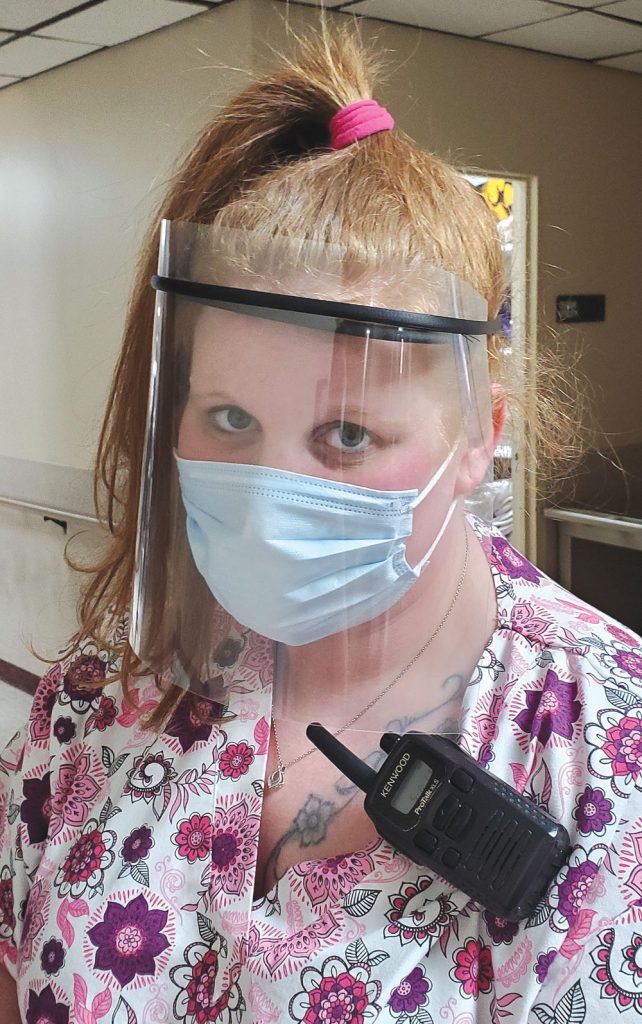


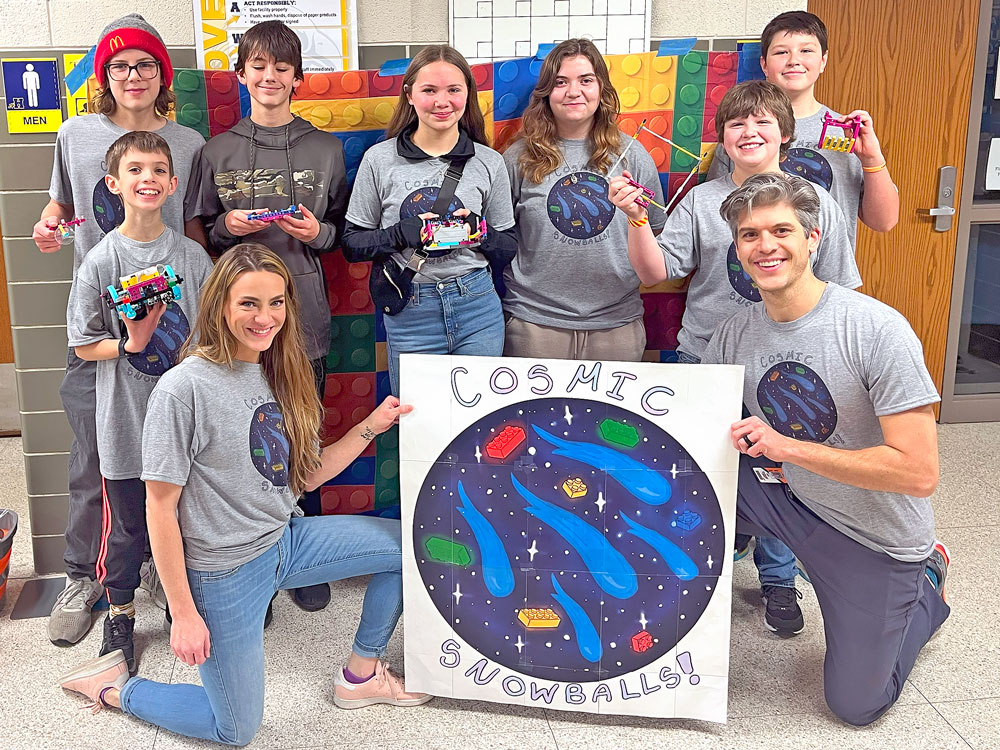
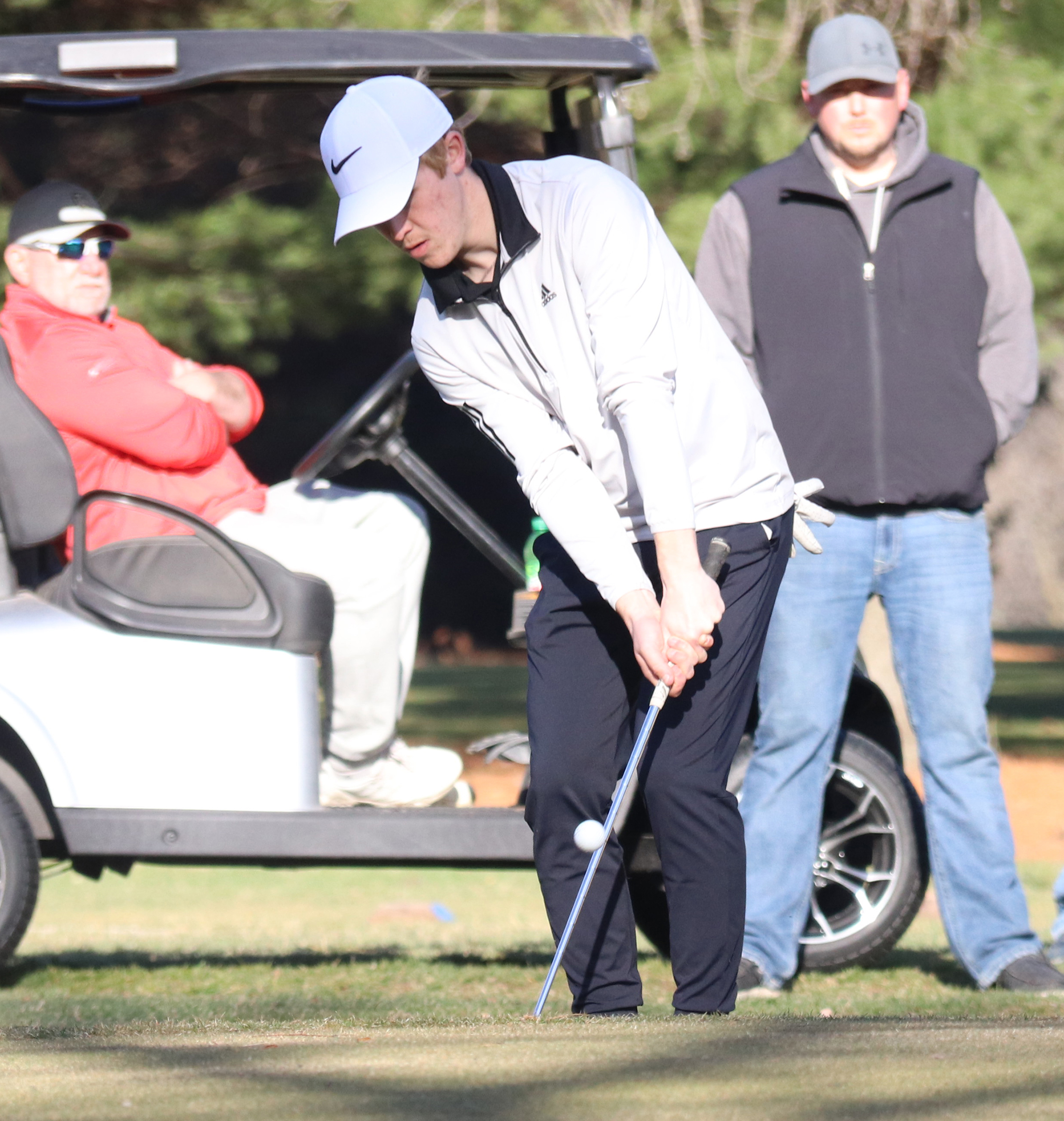
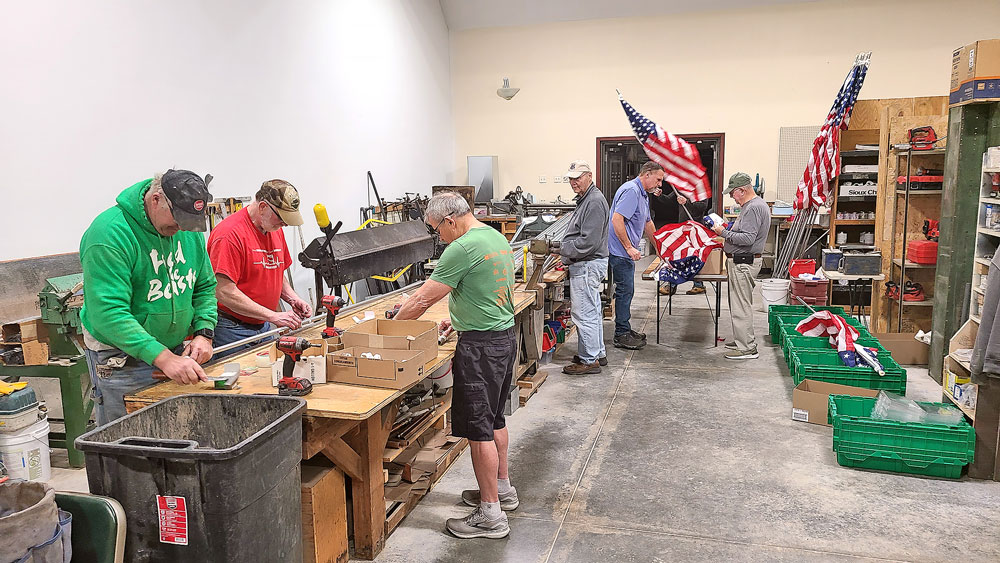


Social Share